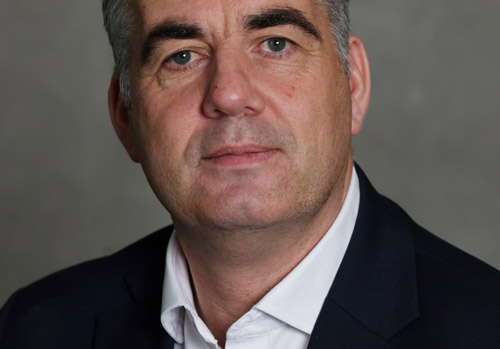
A national standard of access to acute mental health care across all emergency departments in the country is needed, according to a report authored by Profssor James V. Lucey, Inspector Mental Health Commission.
He said mental health assessment in emergency departments in Ireland was associated with substantial delays especially for ‘out-of-hours’ assessment and a ‘poverty of appropriate space’ across most emergency departments,
The report, ‘Acute Mental Healthcare in Hospital Emergency Departments in Ireland, also included references to prolonged and inappropriate placement in emergency departments of children seeking acute support.
It was based on a survey with 100% response from ever HSE hospital with an emergency department or a minor injury unit.
The report demonstrated substantial variations in the level of mental health services provided in hospital emergency departments across all health regions in Ireland.
It highlighted the need to increase the range of acute mental health services provided nationally to improve urgent access and quality of unscheduled mental health care.
The Inspector’s report also recognised the scale of mental health services already provided in emergency departments, but Prof. Lucey noted that the difficulties within these departments would only be resolved through greater investment in community mental health services and in the hospital’s emergency departments.
John Farrelly, Chief Executive of the Mental Health Commission, welcomed the Inspector’s report, which he said not only demonstrated the commitment of frontline staff working in difficult circumstances across the country, but would assist the HSE to reform the provision of acute mental health services in Irish hospitals.
He said that every year, an estimated 51,000 people accessed mental health services for the first time through the hospital emergency department . It was clear from the Inspector’s Report that Model 4 hospital emergency departments were overburdened and needed to be supplemented with services in lower-level hospitals, or in the community where people needed them most. Rising acute mental health demand, staff shortages and lack of space were leading to significant delays and a revolving door system, where adults and children experiencing mental health difficulties were repeatedly returning to emergency departments.
The Mental Health Commission has presented this report to the Health Service Executive and the Department of Health, for review and consideration.
Key findings:
- Model 4 hospital emergency departments are overburdened in comparison to other hospital emergency units. Thousands of mental health patients attend Model 4 emergency departments annually versus hundreds in Model 3 emergency departments
- Poverty of space in emergency departments is a source of concern for those needing acute mental health care, for other emergency department users, and for the staff who care for them all
- Under-resourcing in emergency departments contributes to a revolving door system, where adults and children with mental health difficulties return to the emergency department over and over again
- Care for children in the emergency department is persistently problematic
- Without governance and greater mental health investment in the emergency department, and in the community, it is difficult to see how the progress in mental health services promised in national plans such as Slainte Care and Sharing The Vision will be delivered
Recommendations:
- A national standard of access to acute mental health care across all emergency departments is needed
- Enhanced mental health services in emergency departments are needed in many Model 3 hospital emergency departments but also in some Model 4 hospitals
- It is time to reduce the pressure on Model 4 hospital emergency departments that are currently caring for disproportionate volumes of unscheduled acute mental health assessment
- There is a need for more equitable access to unscheduled mental health service for adults and children
- A wider range of community mental health initiatives need immediate roll-out and evaluation
- Improved mental health resources in Model 3 hospitals (and in injury units) would facilitate redistribution of mental health demand and ensure urgent care planning moved closer to community mental health teams where local care planning is possible
- Investment upstream is needed in primary care and in community spaces as outlined in Ireland’s national mental health service plan, Sharing the Vision
- There is a need to empower community mental health teams to provide more acute unscheduled local mental health care, with earlier intervention a priority
- Appropriate levels of mental health liaison nursing in the emergency department should extend beyond office working hours. All 24/7 emergency departments in Ireland need to be equipped with sufficient staff to address acute mental health needs when they present
The Inspector of Mental Health Services at the Mental Health Commission (MHC) has a statutory duty to report on the quality of care and treatment given to persons in receipt of mental health service, wherever it occurs. An MHC generated provider-based confidential survey was sent via email to each HSE hospital or area manager with responsibility for an emergency department or a minor injury unit. The data received by the MHC related exclusively to mental health services provided in the emergency department or the injury unit. No specific reference to professional respondents was made as part of the report.

